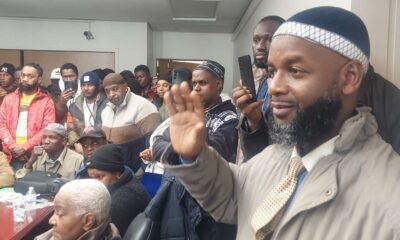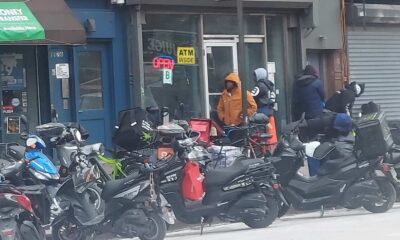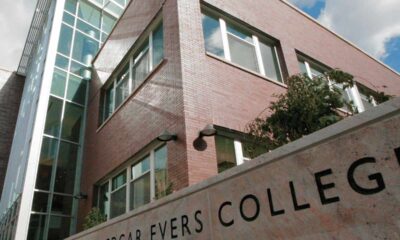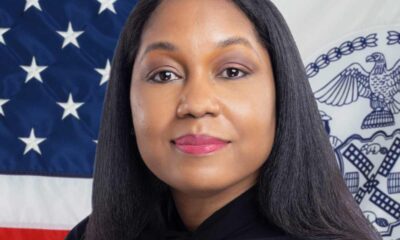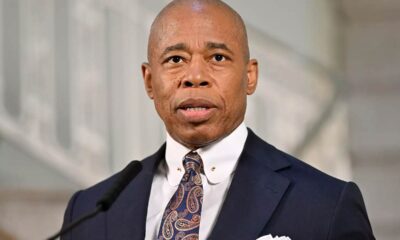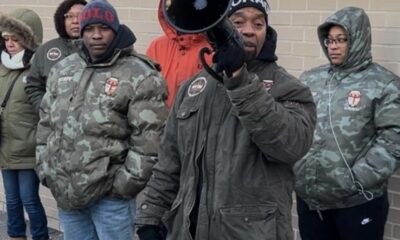Interview
Public Advocate Jumaane Williams Speaks Out on the Humanitarian Crisis Facing Migrants in New York City
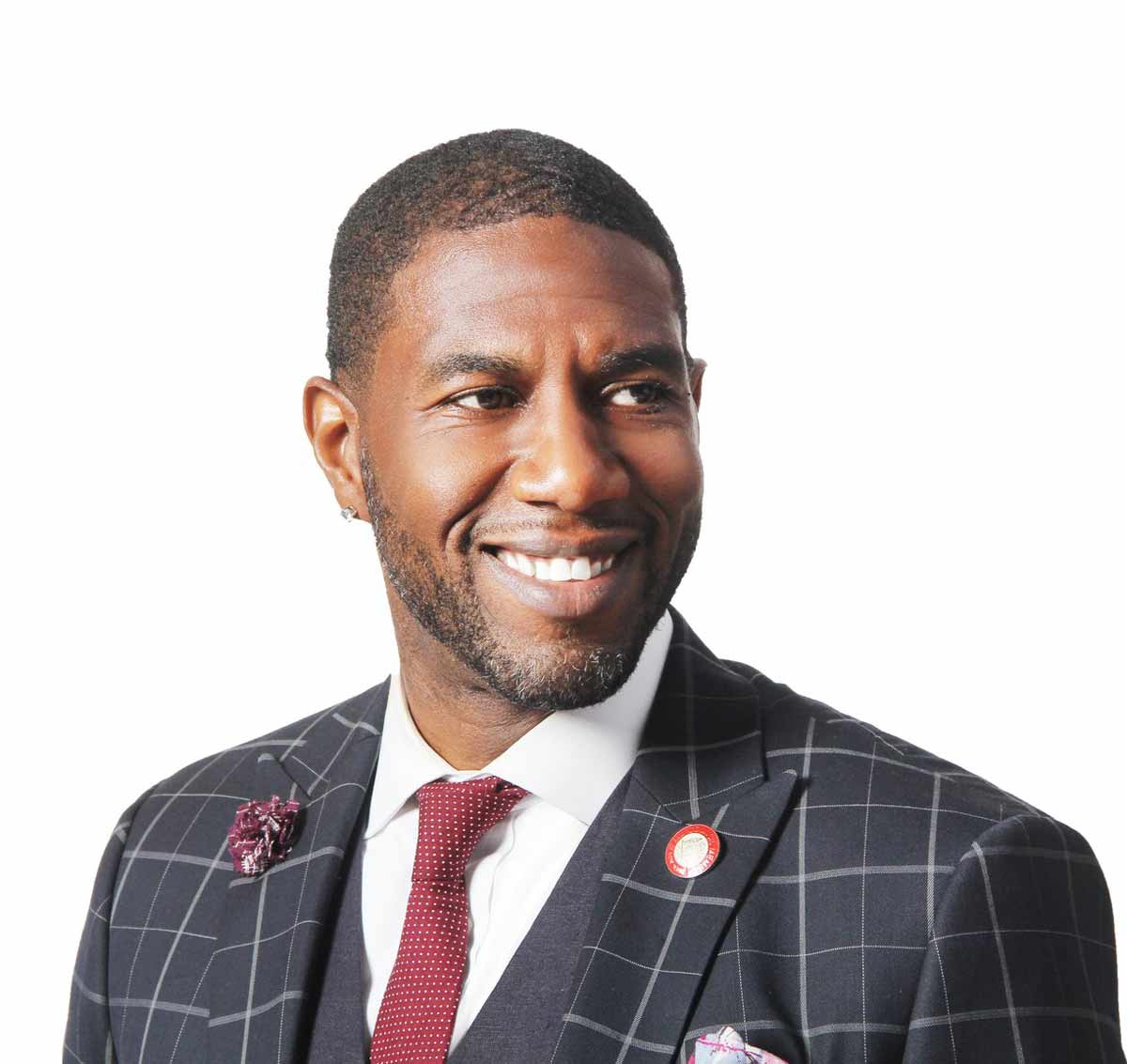
By Our Time Press Staff
Our Time Press reached out to Jumaane Williams, New York City’s Public Advocate, for his insights on how the government and New Yorkers are dealing with the humanitarian crisis facing asylum-seeking migrants.
What migrant assistance programs of the recent past, in your opinion, worked and should be retained?
Probably the most effective one is making the migrants, particularly those here, apply for asylum and the legal services they need. Once they can do that, it unlocks a whole bunch of other services that they otherwise couldn’t get.
What migrant programs are not working and should cease immediately?
For me, it’s more about framing. There’s an incessant framing that everything that’s happening in New York City is the migrants’ fault. That’s the problem. There’s a need to bash their right to shelter. The right to shelter is not the problem. The problem is that our government has not put enough into building the housing that we have needed for many years. Our governor and our White House are not stepping up to assist New York City and to help with the pressure of trying to deal with a national crisis.
What are your thoughts on how the influx of new migrant populations into the Big Apple will impact Gov. Hochul and Mayor Adams’ ambitious “New” New York Plan?
I think the governor has been bad in assisting New York City. Especially by not trying to get the rest of the state to help. To accept the right to shelter as a statewide right. It would help to relieve the pressures that are on New York City. It’s a national humanitarian crisis going on now. We are not getting the assistance that we need from the governor. The governor had a lot to answer for on why she was not providing the assistance needed. I think there would’ve been problems with the New York Plan whether we had migrants here or not. The presence of so many migrants at one time obviously makes things harder. It makes things a bit more acute. But the notion that we would not have had problems with the New York Plan when we are not doing what we need to build housing. We’re not doing things to push back on affordability in the city and the state. That’s not truthful. It’s actually harmful.
Regarding migrants and the NYC Public School System, do you predict major changes in the NYC Department of Education?
On one hand, you have the mayor blaming budget cuts being put forth on the asylum seekers. But on the other hand, one of the main reasons that the education system is not getting some cuts they may have is that the asylum seekers have boosted the NYC Department of Education’s public school system’s numbers. Without some of these students, they might’ve lost even more money. That influx, in this case, was helpful in terms of the bottom line. But we need to get class size under control. I think we’re always trying to make sure that we have a well-rounded and diverse field of study. I think that those things are real conversations about whether or not we have asylum-seekers or migrants. We would be dealing with them if the migrants were not here.
As the Public Advocate, how does the migrant crisis affect your role?
It’s trying to make sure that the messaging is correct. What we have now too often is that sometimes the leadership is trying to pit new and incoming New Yorkers against longtime New Yorkers. They are trying to pit people who have very little against people who have none. Trying to get folks to make sure that their righteous anger is directed to the right place. New Yorkers who have been here for a while, particularly Black and Brown New Yorkers, long-time urban New Yorkers, and working-class New Yorkers, have been struggling and trying to get the housing that they need at affordable prices. They are trying to get the food that they need at affordable prices. Trying to stay in their neighborhoods and have not gotten the type of assistance that they need from this government. They have a very real right to be angry. I can understand how that anger can turn to fury when they see people coming in, and they seem to be getting things that you didn’t. I can see why that would make some people angry. I want to make sure that we help direct that fury and anger at the government that failed them. Not at the human beings that are trying to do the best that they can for their family.
Do you think the influx of migrants will have a long-term positive impact on New York City?
If you look at any large immigration that has happened in this country, there were complaints and pushbacks. But, in the long run it’s always been beneficial. We can see some of that now. There are a lot of jobs not being filled right now by long-time New Yorkers and Americans. These migrants need to get through the legal process so they can be hired. They are not taking jobs from people who are long-time New Yorkers or Americans. What we have seen is the influx of talented workforce and labor. It’s always been beneficial for New York City and the country. We can get through this. I believe the same will happen.
Do you think the Public Advocate will be or is the voice of the New Immigrant?
I think the Public Advocate is the advocate for the public. Whether they are new New Yorkers or long-time New Yorkers, making sure that everyone’s voice is heard. In particular, that conversations happen with humanity. That we don’t lose humanity in our angst and anger. The governor and the White House are not stepping up. The day before the first migrant bus came, there were 50,000 people, long-term New Yorkers, in the shelters, and they had been there for over a year. If we provided the housing that they needed, this housing crisis wouldn’t be as bad as it is. We need to do what’s right for people. We have enough for everybody. We need to try to deal with this humanitarian crisis with as much humanity as possible.


